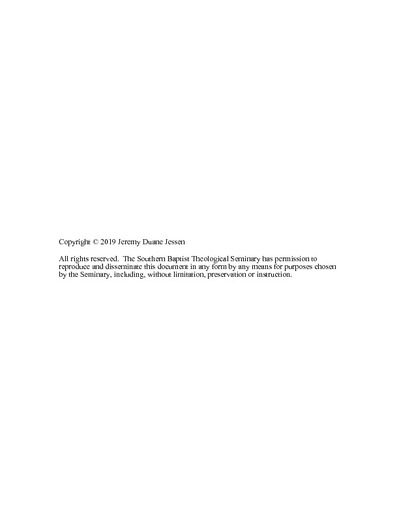Mr. Valiant for Truth: The Polemic of Charles Haddon Spurgeon as Pastor-Theologian During the Downgrade Controversy (1887-1892)
Subject
Spurgeon, C. H. (Charles Haddon), 1834-1892Baptists--England--History--19th century
Baptists--England--Clergy--History--19th century
Theology, Doctrinal--England--History--19th century
Abstract
The primary purpose of this dissertation is to answer the question: what was the polemic of Charles Haddon Spurgeon during the Downgrade Controversy? This question is best answered using the Vanhoozer/Strachan paradigm of the pastor theologian. Using their taxonomy, Spurgeon’s theological discourse both inside and outside the Metropolitan Tabernacle is given context. He is an exemplary model of the pastor as a public theologian. Addressing Spurgeon’s polemic in this fashion produces numerous accompanying questions. From what theological perspective was Spurgeon speaking? Was Spurgeon truly trilingual during the Downgrade? From a rhetorical perspective, how did he speak to the academy, the public at large, and his congregation during this time? How significant was his preaching ministry as the locus of his pastoral theology and public rhetoric during the Downgrade?
This dissertation argues that Charles Haddon Spurgeon served as a model trilingual pastor-theologian in his polemic against theological liberalism during the Downgrade Controversy from 1887-1892. The implications of this study are far reaching. The bifurcation of the pastor and theologian was gathering steam in post-Enlightenment Victorian England and Spurgeon stood alone as a particular kind of intellectual generalist. His controversy also demonstrates that capitulation to cultural ideology and doctrinal divergence didn’t begin with modern controversies over inerrancy, the atonement, or morality. Thus, modern pastor-theologians are not the first ones to wrestle with these things. Spurgeon offers great instruction, encouragement, and fuel for resolve in such critical matters.

